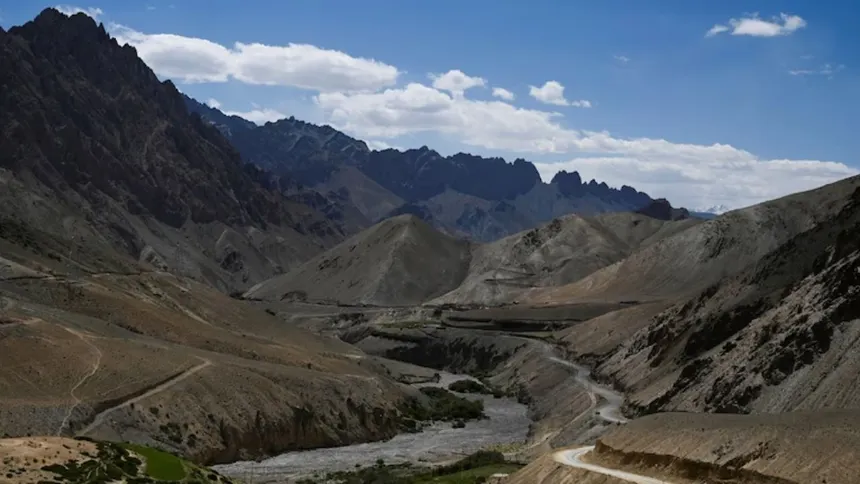Human rights organizations claim that China has renamed hundreds of Uyghur villages and towns.
Hundreds of Uyghur villages and towns have been renamed by Chinese authorities to remove religious or cultural references, with many replaced by names reflecting Communist party ideology, a report has found.
Research published on Wednesday by Human Rights Watch and the Norway-based organisation Uyghur Hjelp documents about 630 communities that have been renamed in this way by the government, mostly during the height of a crackdown on Uyghurs that several governments and human rights bodies have called a genocide.
The new names removing religious, historical or cultural references are among thousands of otherwise benign name changes between 2009 and 2023. According to the two organisations that conducted the research, the apparently political changes, which mostly occurred in 2017-19, targeted three broad categories. Any mentions of religion or Uyghur cultural practices were removed, including terms such as hoja, a title for a Sufi religious teacher, which was removed from at least 25 village names; haniqa, a type of Sufi religious building taken from 10 village names; and mazar, meaning shrine, which was removed from at least 41 village names.
The authorities also changed names that referenced Uyghur kingdoms, republics or leaders from before 1949 when the People’s Republic of China was founded. The report said there were no longer any villages in Xinjiang with the word “xelpe” or “khalifa” (ruler), or “meschit” (mosque) in their names.
Uyghurs are a Turkic ethnic group mainly found in Xinjiang. They have long had a fractious relationship with Beijing, which accuses many of them of wanting to break away from Chinese rule.
The report said the new village names were typically in Mandarin Chinese and expressed a “positive sentiment, which the government wants Uyghurs to embrace and express under the Chinese leadership”.
In 2018, Aq Meschit (White Mosque) village, in Akto County, was renamed Unity village, the report said. In 2022 the Karakax County village of Dutar – named for a Uyghur traditional instrument – was renamed Red Flag village.
“This is part of the broader efforts by the Chinese government to conflate Islam with terrorism,” said Elaine Pearson, the director of Human Rights Watch’s Asia division. “They see anything Islamic or Arabic sounding as threatening, so they renamed these things to be more in mind with [Chinese Communist party] ideology.
“We’ve seen this also in the way mosques have been demolished, changed, altered. We’ve seen many different examples in the way the Chinese government uses this to violate aspects of free expression and cultural identity and religious freedom.”
Rayhan Asat, a Uyghur human rights lawyer and senior fellow at the Atlantic Council, whose brother disappeared into the Xinjiang detention regime in 2016, told the Guardian the changes were part of Beijing’s “overarching objective to eradicate the Uyghur culture and people entirely and create a system of apartheid”.
“The names of their villages serve not only as historical records but also embody the community’s ties, distinct town culture, and values. The state-imposed erasure and replacement policy aimed to sever Uyghurs from our history, culture, and civilisation.”

The practice of renaming locations – like many of the policies imposed in Xinjiang – was first done in Tibet. In 2023 the Chinese government began referring to Tibet as “Xizang” on official documents. Since 2017 it has also issued official Chinese names for locations in Arunachal Pradesh, the disputed Himalayan region where China claims territory.
In Tibet and Xinjiang the increasingly militarised and surveilled environment makes it extremely difficult for information to come out about human rights abuses, and the Chinese government rarely responds to requests for information.
Pearson said: “Part of the reason we know this is happening is that in one case a woman released from a re-education facility tried to get a bus ticket home but found her village didn’t exist any more.”
Since launching its “strike hard” campaign against Uyghur and other Turkic Muslims in 2014 in the name of counter-terrorism, the Chinese government has arbitrarily detained millions of people, in re-education camps and jails, criminalising religious acts such as growing beards or reading the Qur’an. Others have been persecuted for having contact with the international diaspora or travelling overseas.
There is evidence of enforced mass labour transfer programmes, enforced social re-education, torture and enforced disappearances, and coercive reproductive control.
In 2021, Human Rights Watch said the Chinese government had committed crimes against humanity. In 2022 the UN high commissioner for human rights determined that the Chinese government had been committing long-running human rights abuses, probably to the level of crimes against humanity.
Some governments have designated its acts as genocide. China denies the charges, claiming that its policies in Xinjiang are related to counter-terrorism and extremist threats.













